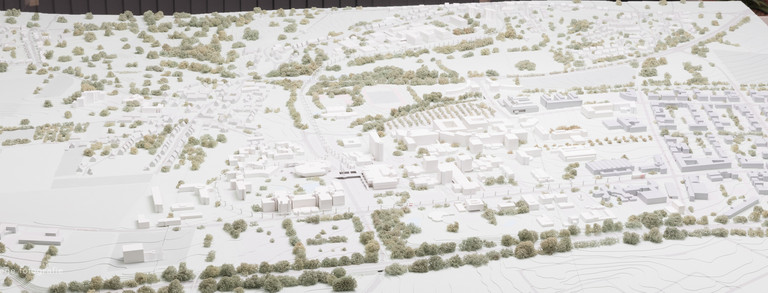SoCoN - Social Cohesion in Urban Neighbourhoods
Social disparities are increasing not only between cities, but also within cities. Under these circumstances, it can be observed that in many European cities and urban neighbourhoods, different forms of civil society engagement are emerging in which citizens take responsibility for (sub-)spaces, communities and/or development processes.
Duration: 01/2022 – 12/2022
Goal
In that context, SoCoN wants to investigate in a comparative perspective with partners in Albania, Germany, Greece and North Macedonia to what extent civil society actors take responsibility for "their" neighbourhood. In particular, the partners in SoCoN want to explore the influence of small-scale civil society initiatives on the design of (public) spaces: What are success factors and framework conditions that would also be relevant for other cities or regions? What can municipalities and other actors learn from each other? The following research questions are the focus of the professional exchange:
- What are the goals of civil society engagement? In which areas (and by which actors) is responsibility for the development of urban districts undertaken?
- What differences can be observed regarding the assumption of responsibility by civil society? What different motives can be identified, e.g. in relation to the time horizon (short-term vs. long-term perspective) or the degree of orientation towards the common good?
- What is the relationship between local civil society actors taking responsibility and state and municipal structures or organisations? What role do welfare state systems and institutions (e.g. urban planning) as well as social traditions play in the assumption of civil society commitment?
- What role does urban and regional planning play in the adoption of civic engagement? Can planners promote or strengthen civic engagement through the design of spaces (houses, streets/places, neighbourhoods, etc.)?
Approach
To achieve the project goals, various complementary measures are planned in which different target groups (Bachelor's/Master's students, doctoral students and post-doctoral researchers) are involved. Through the combination of different methods and approaches, there will be event formats that focus more on the exchange of research between academics in the Western Balkan region and between German and Southeast European researchers, as well as events that focus on the transfer of knowledge between academics and civil society actors and between academics and students. In this way, SoCoN contributes to promoting cross-border exchange in the Western Balkans region and encouraging Albanian, German, Greek and North Macedonian students and young academics to develop integrated strategies for action to strengthen social cohesion at neighbourhood level as well as new and resilient forms of cooperation between public and civil society actors (forms of governance).

Partners and Funding
Joined Partners
- PD Dr. Sylvia Herrmann | Institut für Umweltplanung (IUP), Leibniz Universität Hannover; Forschungsinstitut Gesellschaftlicher Zusammenhalt, TI Hannover
- Prof. Divna Pencik | University „Ss. Cyril and Methodius“, Skopje
- Stefan Lazarevski | University „Ss. Cyril and Methodius“, Skopje
- Rudina Toto, PhD | Co-Plan, Institut for Habitat Development, Tirana
- Prof. Elona Karafili | International School of Architecture and Urban Development Policies, Polis University Tirana
- Assistant Prof. Evangelos Asprogerakas | Department of Spatial Planning and Regional Development, University of Thessaly, Volos
- Prof. Konstantinos Serraos | School of Architecture, National Technical University of Athens
Funding
The project „Social Cohesion in Urban Neighbourhoods – the Role of Civil Society Initiatives“ is funded by the German Academic Exchange Service (DAAD) within the programme „Higher Education Dialogue with Western Balkan Countries“ (Project reference number 57610042) and takes place in cooperation with the Forschungszentraum für Gesellschaftlichen Zusammenhalt




Contact Partners
TU Dortmund University |



